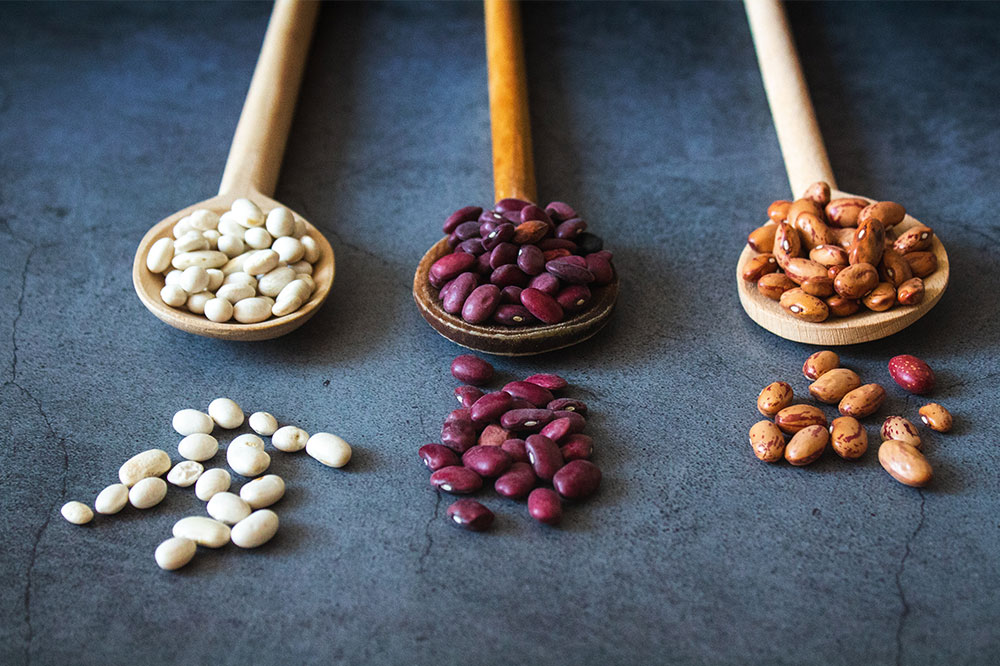7 foods to avoid for a Crohns flare-up

Crohns disease is an inflammatory condition of the gastrointestinal tract that mainly occurs in the colon and the small intestine and can affect any part of the GI tract. It causes sudden and painful symptoms such as diarrhea, fever, cramps, bloody stool, and fatigue. While food doesn’t cause Crohns, it can perhaps worsen the disease by leading to flare-ups. Here are some foods one needs to avoid if they are experiencing discomfort due to Crohns.
Grains
Grains contain a lot of fiber, which can worsen the symptoms of Crohns. This is because a high amount of fiber can make your intestines work harder. This makes the normal digestive process difficult, leading to abdominal pain, cramps, and even bloating. Avoid eating whole wheat bread or pasta, rye products, and barley to prevent these painful symptoms.
Spicy foods
Regarding the worst foods for Crohns flare-ups, spicy foods rank among the top. Most foods with spices are rich in capsaicin, which causes a burning feeling inside your mouth and stomach. These include chili, paprika, pepper, nutmeg, clove, and mustard. Capsaicin increases the level of acids in your stomach and may worsen symptoms, such as stomach cramps, diarrhea, and acidity.
Fibrous fruits and vegetables
Like grains, fibrous fruits and vegetables don’t get digested easily, and can cause constipation and cramps – typical symptoms of Crohns flare-ups. However, you don’t need to avoid vegetables and fruits altogether. For instance, you can have cooked veggies instead of consuming them raw. For fruits you can limit your intake of apples with skin, cherries, peaches, and plums. You should also avoid cruciferous vegetables such as cauliflower and broccoli. They are not only high in fiber, but can also cause flatulence, leading to a double whammy for an already irritated intestine.
Nuts and seeds
Foods such as pumpkin seeds, almonds, cashews, walnuts, etc., are more complex for your body to break down even on regular days. When you are experiencing a Crohns flare-up, they can wreak havoc in your system. Not only will they cause digestive issues, but their sharp edges may also irritate the lining of your gastrointestinal tract and cause pain. So, consider giving the nuts and seeds a break. Instead, opt for hummus, tahini, and smooth peanut butter.
Dairy products
Dairy products such as milk, butter, cream, and cheese are high in lactose. This is a naturally-occurring sugar in dairy that exacerbates the symptoms of Crohns, such as abdominal cramps, gas, and diarrhea. However, since dairy products are a rich source of calcium, essential for your health, you may include low-fat dairy products in your routine with less lactose. Some examples are yogurt, aged and hard cheese, and clarified butter.
Artificial sweeteners
Since sugary foods and drinks increase the risk of several serious diseases, we often substitute sugar with artificial sweeteners. These include aspartame, sucralose, saccharin, and xylitol. However, these artificial sweetening agents are said to increase gut inflammation and can worsen the symptoms. This happens due to the increase in the growth of E.coli bacteria and negatively affects those who suffer from Crohns .
Coffee and alcohol
Who doesn’t love to unwind with a cup of coffee or a chilled beverage? But if you are experiencing discomfort , you must be mindful of the caffeine and alcohol intake. With its high levels of caffeine, coffee can easily aggravate the symptoms where people have reported diarrhea. Alcoholic beverages also irritate the gastrointestinal tract and may interact with treatments that you may be taking to treat Crohns . Instead, it would be best if you opted for plain or coconut water to improve your hydration levels.
What you eat and drink plays a significant role in the management of Crohns . While the list of foods and beverages is long, these are the major ones you should consider eliminating from your routine to relieve the condition’s symptoms. Also, always consult your doctor before changing your eating regime.







